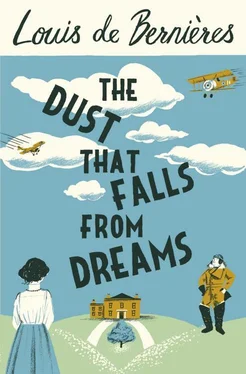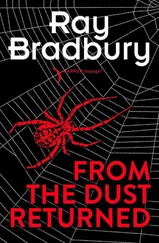The city suddenly blossomed with colour, like a garden in spring when the tulips come. The blackout curtains were torn down, so that lights blazed once more from windows. The French tricolour and flags from all over the Empire were hoisted on broomsticks and curtain poles lashed to chimneys and drainpipes. In every town and village the Boy Scouts were sent out on their bicycles to sound the all-clear for the last time. Incoherent fanfares blared from hunting horns and bugles, even inside people’s own houses. The pubs were drunk dry, and those that were not stayed open in defiance of their licences.
The merrymaking continued all night. Military lorries laden with roaring loads of multinational servicemen lurched around the streets. The Savoy Hotel was overturned by officers of the Royal Air Force, led by a young ace waving a stupendously large French flag. It was a Monday, and the celebrations carried on all week. At 1 a.m. Mrs McCosh came home by taxi, dishevelled, wet, hungry and exhausted. She hammered on the door, unable to find her key, and Millicent in her night attire let her in, shocked to discover her mistress smelling distinctly of brandy. Mrs McCosh was mainly inebriated, however, by having seen the King so many times in one day. As for him, he spent the night writing letters of thanks to his ministers and to the personnel of the army, the navy and the air force.
Amid those who cheered and danced in the streets there were many who neither cheered nor danced. There were those, wiser than before, who remembered with a sense of retrospective amazement that four years earlier they had taken part in scenes of celebration almost identical to these, when war broke out. Very nearly all of them, however, thought that the war had been worth it.
On 7 November Hutch had gone with Lieutenant Simmons and seventy-one other ranks to establish an advanced GHQ in an abandoned train near Valenciennes, in the tiny village of Iwuy. On the 11th he had been one of the unlucky ones who had had to remain on guard duty whilst his comrades went on a spree to celebrate the news of the armistice.
Nonetheless, a few days later he was on his way home on leave, in part a recognition of the extraordinary fact that he had survived the entire conflict in one regiment, in one theatre of war.
As he travelled home across the English Channel he found that he did not really know how to feel. A part of him seemed numbed. He slept well at night but his dreams were populated by the dead. He saw their faces and heard their voices. Oddly enough, he often remembered more vividly the faces of dead enemies than those of his friends. It is impossible to forget the amazement on the face of a soldier who doubles over, grasping at the muzzle of your rifle as he tries to pull out the bayonet that you have thrust through his abdomen. The army’s policy of keeping you relentlessly busy even when you are exhausted had made the war go by in a blur of activity and extreme fatigue. He had mastered the soldier’s art of snatching a few seconds of profound sleep, whenever the opportunity arose, even when he was frozen and soaked, and lying on a bed of duckboards.
There were many things he remembered with great pleasure, such as the sun glistening on frost shortly after dawn, or the brilliance of the stars on a clear night, or the way that birds sang louder when they were competing with guns, or how the larks sang high above when battle ceased, or the German tenor who used to sing a lullaby, or the wondrous black shadows thrown by the intense light of star shells. He remembered well-loved faces lit up in a dugout by the light of candle stubs, the smell of damp wood burning, the fountains of mud hurled up by shells, the mad few days of leave when he had lived at the rate of a day a minute. He had loved watching aeroplanes. He remembered the pleasure he had taken in witnessing the heroism and cheerfulness of the upper-class lady ambulance drivers who had deserted their comfortable estates in order to drive vehicles donated by their fathers, slogging through the squelching mire to carry the injured away to their makeshift hospitals that were always on the move because of the shifting boundaries of the front, and where they worked all night during offensives. Those women were the salt of the earth, in his estimation. He remembered too the wild and hilarious football matches behind the lines when they were resting, the ribald songs, the stupid jokes, the playfights. He remembered standing with Ash looking at a huge hole blown through the wooden sides of a bunker, and Ash saying, ‘Looks like we’ve got rats.’ He remembered an officer getting a large hamper from Fortnum & Mason, who had then been hit by a fragment of bomb from a Halberstadt when they had been relaxing in the relative safety and comfort of their billet at Mont St Eloi. ‘Sergeant, I bequeath you my hamper,’ the young officer had said, a moment before he died, and the warrant officers had shared it out, drinking the champagne out of tin mugs and proposing toasts to the memory of their benefactor. Hutch was still wearing his boots.
Hutch had kept going not least because of his passion for Millicent. There was never a time when he was not thinking about seeing her again. He thought constantly of what he would say, and of the things that one day they would be able to do, after the war. He had spent time with her on every occasion that he’d been granted leave, spending less time with his family than he rightly should. Rosie, who tried to coordinate her leaves with Hutch, had admirably connived in this, finding false errands for Millicent that would allow her out of the house. Hutch had a steadily growing bundle of letters that Rosie had helped her to write, and read them over and over again even when they spoke only of the weather and of how you could hardly get sugar.
Nonetheless Hutch was exhausted, so exhausted that he did not even know it himself. He was two stone below his natural weight, his bowels were either in flux or blocked solid, and often he ached all over without really knowing why. His rank had meant that he had had at all times to be tougher and more energetic than his men, because no soldier respects anyone above him who cannot do what he does, or does even better.
He went home briefly to Walthamstow to check on his mother and father, and then set off by train for Eltham. He was feeling a little out of sorts, or ‘seedy’ as people liked to say in those days, but put it down to the strangeness of being at peace. Now that the 15th had passed, the universal joy and relief were beginning to be tempered by a mood of counting the cost, and there was an atmosphere of uncertainty about what might happen next.
Something new and as deadly as the war had gathered momentum. It was said that six million had already died in India.
Dressed in civvies, and wondering whether he should turn back and go home, he knocked on the kitchen door of The Grampians, and it was answered by Cookie, rolling pin in hand, with her sleeves rolled up to reveal her florid, powerful forearms. ‘Oh, it’s you!’ she cried, adding, ‘I was just making pear-and-apple pie.’
‘Good to see you, Cookie,’ said Hutch.
‘Come in, come in,’ cried Cookie, ‘Millie’ll be so pleased.’
At the kitchen table, cradling large mugs of milky sweet tea, were the two policemen who called in on most days and were refortified by Cookie at elevenses, their feet already hot and a little swollen from pounding the beat. ‘This is Corporal Leonard Hutchinson,’ announced Cookie, ‘what’s going to marry our Millicent one of these days.’
‘I’m a sergeant now,’ said Hutchinson. ‘Everyone calls me Hutch.’
‘Not “Bunny” then,’ said one of the policemen drily.
‘Not yet,’ replied Hutch, ‘and no one’d better start either.’
‘Well, I’m Police Constable David Miller, and this here is Police Constable Ernest White.’
Читать дальше












